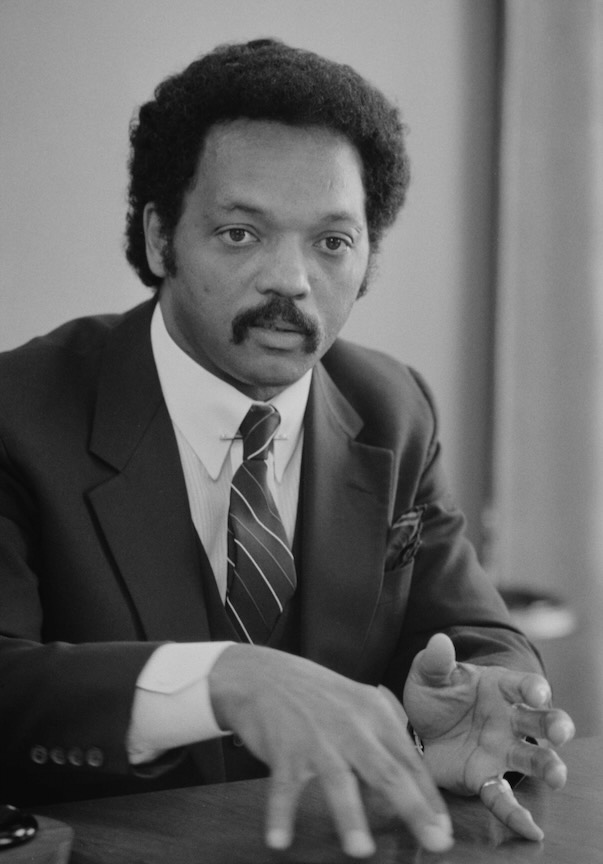1984 Jesse Jackson Runs for President

Jesse Jackson became the first African American to make a serious bid for the Presidency. While the bid was unsuccessful, it helped to solidify Jackson's political power. |
Jesse Jackson's bid for the presidency in the 1980s marked a significant milestone in American political history. As the first African American to make a serious run for the highest office in the United States, Jackson's campaigns in 1984 and 1988 were groundbreaking. Though ultimately unsuccessful, they had a lasting impact on American politics, particularly in terms of increasing African American political participation and solidifying Jackson's role as a major political figure. Jackson's first presidential campaign in 1984 was launched under the banner of the Rainbow Coalition, a political organization he founded to build a broad base of support from various marginalized groups. The coalition included African Americans, Latinos, Asian Americans, Native Americans, and poor white voters. Jackson’s platform focused on social justice, economic equality, and civil rights. He advocated for policies such as increased funding for public education, national health insurance, and a war on poverty. Jackson's message resonated with many voters who felt left behind by the mainstream political parties, and he was able to galvanize significant support. In the 1984 Democratic primary, Jackson won over 3 million votes, accounting for nearly 20% of the primary vote. He won five primaries and caucuses, including Virginia, South Carolina, Louisiana, the District of Columbia, and Mississippi. This was an extraordinary achievement for a candidate who was often dismissed by the political establishment. Jackson’s campaign demonstrated that a Black candidate could build a broad-based coalition and compete on the national stage. Four years later, in 1988, Jackson ran for president again. This time, he was more experienced and better organized. His message had also evolved, focusing on economic issues that resonated with a broader segment of the electorate. Jackson called for a “Common Ground” agenda that included the expansion of civil rights, the fight against poverty, and the promotion of peace. His platform included universal health care, a higher minimum wage, and greater investment in education and infrastructure. The 1988 campaign was even more successful than the 1984 effort. Jackson won 13 primaries and caucuses, including contests in states such as Michigan, Virginia, and Georgia. He received over 7 million votes, representing about 29% of the total primary vote. Jackson’s victories in several key states, including Michigan, were particularly significant because they demonstrated his ability to win support outside of the South, where he had been most successful in 1984. His strong showing in the 1988 primaries earned him a prominent speaking role at the Democratic National Convention, where he delivered a memorable speech that emphasized unity and inclusion. Although Jackson did not win the Democratic nomination, his campaigns had a profound impact on American politics. They helped to pave the way for future African American candidates, including Barack Obama, who would go on to win the presidency in 2008. Jackson's campaigns also forced the Democratic Party to pay more attention to the concerns of African American voters and other marginalized groups. The Rainbow Coalition that Jackson built served as a model for future political movements that sought to unite diverse groups around common goals. Jackson's presidential campaigns also solidified his position as a leading figure in American politics. Even after his bids for the presidency, Jackson remained a powerful voice for social justice and civil rights. He continued to be involved in politics and activism, advocating for issues such as voting rights, economic justice, and international peace. His campaigns for the presidency were not only historic in their own right, but they also laid the groundwork for future generations of political leaders. In conclusion, Jesse Jackson's presidential campaigns in 1984 and 1988 were significant milestones in American history. Although he did not win the presidency, his efforts helped to increase political participation among African Americans and other marginalized groups. Jackson's campaigns demonstrated the potential for a Black candidate to compete on the national stage and contributed to the broader movement for social justice and equality in the United States. |
